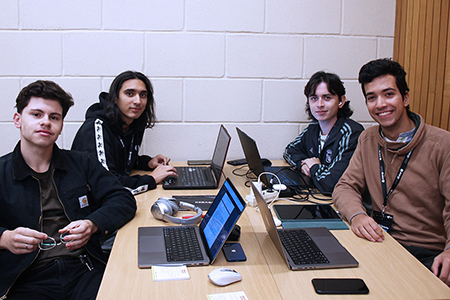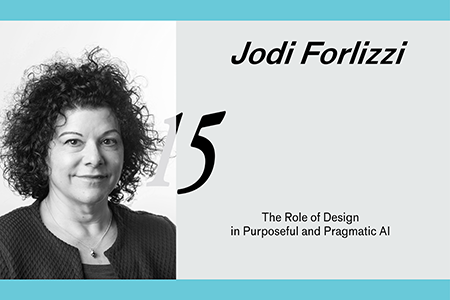In 2024 we celebrate 30 years since the creation of LEIC – the Bachelor’s Degree in Informatics and Computing Engineering at FEUP, a course that began as a pre-Bologna 5-year Bachelor’s Degree (LEIC) in 1994/95, went on to become a 5-year Integrated Master’s Degree (MIEIC) from 2006/07 and separate 3-year Bachelor’s Degree (L.EIC – joint course with FCUP) and 2-year Master’s Degree (M.EIC) courses from 2021/22, a format that continues today.
This is a good time to recall the innovative characteristics of LEIC when it was launched in 1994, namely that it was the first interdepartmental and interdisciplinary degree course at FEUP, with specific management bodies composed of teachers from various departments, a requirement presented in the creation proposal as essential and decisive by its creators.
The proposal was born in 1993, following a weekend of reflection at the Hotel Boega, Vila Nova de Cerveira, at the beginning of January, attended by Ademar Aguiar, João Falcão e Cunha, João Pascoal Faria, João Vasco Ranito, José Correia, José Manuel Moreira and Raul Moreira Vidal, at the time researchers at INESC Porto. The proposal to create LEIC, signed by Professors João Falcão e Cunha and Raul Moreira Vidal, was presented to the then Director of FEUP, Prof. José Marques dos Santos, and received his full support, namely the assumption of the position of LEIC’s Director between 1994 to 2001.
These have been years of hard work, disruption and winning bets, as evidenced by the evaluation of the External Commission appointed by the Foundation of Portuguese Universities (FUP), which in 2001 ranked LEIC 1st among all similar courses in Portugal, in what was the first evaluation of the course. The report of this evaluation states that “… it should be clarified that the teaching of Informatics in Portugal is in good health and that this health has improved even more since the 1st cycle of evaluations was carried out”, which leads us to conclude that LEIC has made a very significant contribution to the teaching of Informatics and Computing Engineering in our country.
And it is this quality of teaching that has always distinguished the course over the last 30 years, providing students not only with an excellent technical training, but also with transversal training that is highly valued by employers, who have always recognised the quality stamp of FEUP’s EIC graduates. Raul Moreira Vidal, co-founder of LEIC and its director from 2001 to 2008, the year in which he became director of the Department of Informatics Engineering (DEI), created in 2008, is certain that “some of the main reasons for the great successes recorded in the evolution of the course are essentially due to the quality and care taken in the supervision of the course, the quality of the direction/coordination of the course and the quality of the teaching staff and secretariat“.
Looking to the future and all the challenges associated with rapid technological evolution, João Paiva Cardoso, the current director of DEI, says: “30 years strengthens our commitment and increases our responsibility. It’s a time to celebrate and also to wish that we continue to improve our capacity to provide a unique and complete EIC education, which will allow us to continue to train the Informatics engineers of the future.”
The celebration
After 30 years and more than 2600 graduates, it’s time to celebrate the many achievements and look to the future with optimism.
And it was in a festive atmosphere that this milestone of 30 years of EIC was celebrated on the 27th and 28th September at the José Marques dos Santos Auditorium (streamed online), bringing together the large EIC family – alumni, teachers, staff, current students, industrial partners and other institutions, in a total of more than 300 participants, in an event co-organised with AlumniEI (FEUP’s Informatics Engineering Alumni Association, officially created in 2005).
The programme was opened by Renato Natal Jorge (Deputy Director of FEUP) and João Paiva Cardoso (Director of DEI), followed by a presentation of the programme by the President of the Organising Committee, João Pascoal Faria, a presentation on the evolution and current situation of the course by Rosaldo Rossetti, Co-Director of L.EIC, and a presentation on the alumni community around the world by the President of AlumniEI, José Coutinho.
At this point in the programme, the two projects developed as part of this celebration were presented. The ‘EIC Timeline‘ project, developed by the LGP ‘OpenTabs’ team, where we can explore the historical moments that have shaped Informatics Engineering at the University of Porto, and the ‘AlumniEI World‘ project, a joint DEI-FEUP/AlumniEI initiative, developed by Jénifer Constantino (MESW 2024) and José Coutinho and Rui Neves as consultants, a tool based on LinkedIn data that allows us to find the current location/company of EIC alumni and search by country, course and year of graduation. It’s an ongoing project that aims to involve more and more former students and that will continue with two master’s theses.
Throughout the day, there were two round tables of alumni testimonials, where we were able to witness the diversity of paths and options for those who start from the same point.
Frederico Câmara (Alts Digital), Felipe Ávila da Costa (Infraspeak), Tiago Azevedo (University of Cambridge), Margarida Silva (AWS), Sofia Sá (Alumna L.EIC), Tiago Fernandes (Coverflex), Pedro Côrte-Real (MC Sonae), Sónia Liquito (Spotify), Rui Gonçalves (Meta) and Mariana Salvaterra (Zühlke Group) took to the stage to share their experiences, their individual stories, their difficulties and their successes in two panels moderated by Rui Rodrigues (Director of M. EIC) in the morning and Carla Teixeira Lopes (Director of MCI and one of the first LEIC graduates) in the afternoon.
Later in the afternoon, Clara Gonçalves (Inductiva.AI) brought together Inês Lynce (IST/UL & INESC-ID), José Nuno Oliveira (UMinho & ENSICO), João Ranito (Hands-on Investor) and Gonçalo Quadros (Critical Software) for a round table discussion on what the “next 30 years of EIC” might look like.
Two musical moments livened up the programme and delighted the audience. Sofia Sá, who took part in the first panel of the day with her testimony, included in the repertoire she brought to the auditorium a song of her own, composed especially for this celebration. “Engenharia Informática” is the result of three years of meaningful experiences that, according to Sofia, ‘will last a lifetime’. TUNAFE closed the programme with a joyful performance, something that they have accustomed us to over the years. There were many Informatics familiar faces, who, in addition to their computers, carry their love for music and TUNAFE with them on a daily basis.
The closing speech was given by Raul Moreira Vidal, Emeritus Professor of DEI/FEUP, and Alberto Silva, Secretary of State for Modernisation and Digitalisation.
From the auditorium to the lawn (where the tree planted to celebrate the EIC’s 20th anniversary has been growing for 10 years), the participants ended the evening in the best possible way, with an informal dinner party where conversations and memories brought smiles and promised new reunions.
This was accompanied by a performance by the band Júpiter, with disco funk in the style of Porto, and TECHUMAN, an audiovisual installation designed by Openfield Creative Lab that explores the symbiotic and ever-changing relationship between technology and humanity.
And of course there was plenty of birthday cake, sparkling wine and toasts to the long life of FEUP’s Informatics and Computing Engineering programme.
The party continued on Saturday 28th with a ‘Meet&Grill’ event organized by the AlumniEI Board, with the aim of bringing together former students from the various Informatics and Computing Engineering courses for a time of activity and socializing between several generations of EIC, an opportunity to catch up, meet new people and make plans for the future.
And speaking of the future, we invite you to read ‘Clarke’s Lunette‘, a text written by Fátima Vieira, Vice-Rector of Culture and Museums at the University of Porto, as part of this celebration.
This event was sponsored and supported by various partners listed on the event’s webpage.
The full recording of the event is available here.









